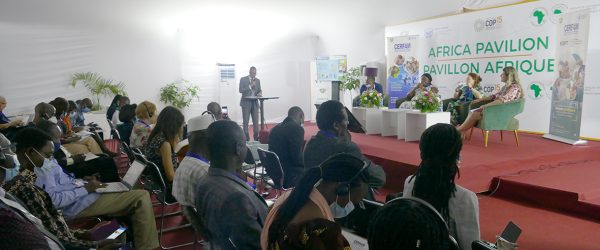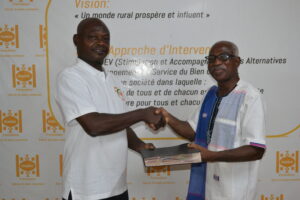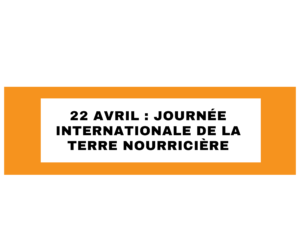Sharing lessons learned and good practices on adaptation/resilience to climate change in West and Central Africa, drawn from the project to capitalize on said practices of resilience and governance in the face of climate change, such was the objective of Inades-Formation’s participation in the panel organized by CERFAM during COP15 in Abidjan.
This panel, a parallel event to COP15, was held on Monday 16 May 2022 at Sofitel Ivoire in Cocody, Abidjan and aimed to initiate a debate between experts and development policy stakeholders on the vital role that sustained South-South cooperation could play a role in climate change adaptation in Africa.
During his presentation, Mr. Sena Kwaku Adessou, Secretary General of Inades-Formation briefly presented the project of study-capitalization of good practices in the face of the challenges of climate change and local governance in sub-Saharan Africa, a project carried out thanks to the funding from the Basque Agency for Cooperation and Development, which he did not fail to thank.
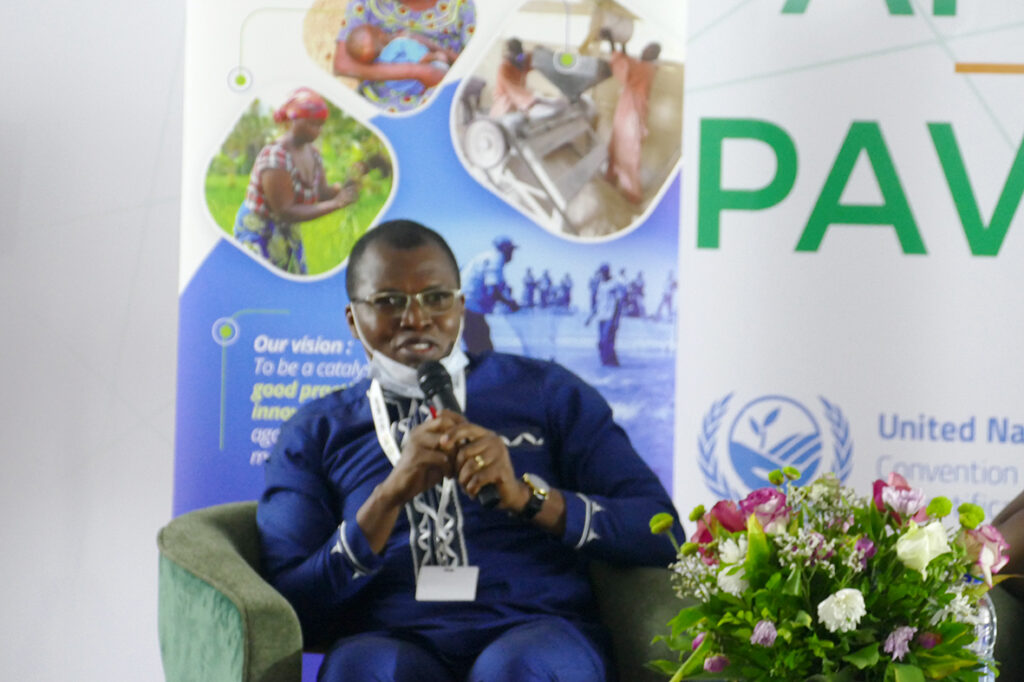
The objective of the capitalization project was to enable, through capitalization, emulation and scaling up of experiences capitalized in the countries of sub-Saharan Africa.
It made it possible to identify 158 experiences carried out by 58 actors, including cooperatives, umbrella farmers’ organizations, NGOs and public institutions.
Among these experiences, 50 initiatives, led by 39 actors in 11 African countries, namely Senegal, Burkina Faso, Côte d’Ivoire, Togo, Chad, Cameroon, the Democratic Republic of Congo (DR Congo) , Rwanda, Burundi, Kenya and Tanzania, were selected and documented according to a very specific methodology.
A capitalization booklet has been produced and is available in French, English and Spanish as well as video documentaries of ten experiences.
The lessons learned according to Mr. Sena Adessou are of various orders including among others:
- Taking gender into account, which is a lever for the success and sustainability of practices;
- The establishment of an electronic platform for exchange and sharing of experiences makes it possible to strengthen the skills of the actors, to multiply and scale up initiatives;
- Good local governance initiatives, which are very underdeveloped, should be encouraged to facilitate the success of sustainable natural resource management practices.
- Etc.
It should be noted that the experiences capitalized relate to different areas, in particular:
Moisture conservation, water harvesting and management; alternatives to the massive use of firewood; the manufacture and use of energy-saving stoves/kitchens; Adoption of seeds/crops and breeds resistant to climate change; renewable energy for irrigation; the Farm Climate Information System; agroforestry and sustainable land management systems; concerted mechanisms for the management of village forests, inter-village forests, nature reserves; m Community-based climate disaster early warning mechanisms; education and citizen awareness on response measures against climate change; local governance mechanisms for agro-ecological transition; local governance mechanisms for livestock transhumance in the dry season, etc.
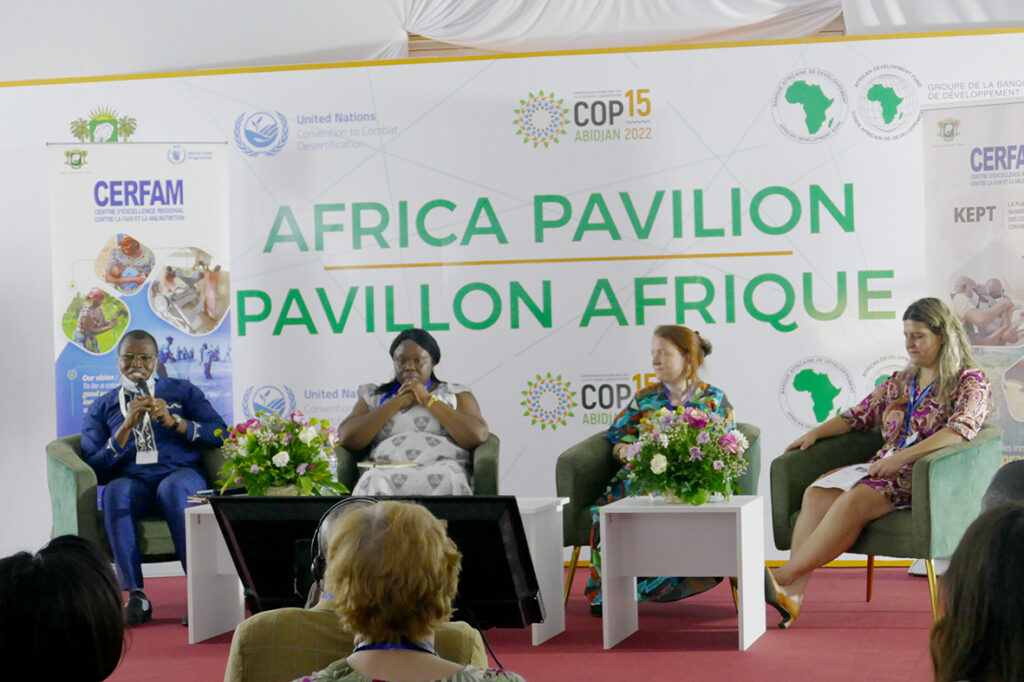
Three other panelists intervened after Inades-Formation.
It is :
- Mrs. Patricia Zoundi, President, Movement of Small and Medium Enterprises of Côte d’Ivoire (MSME). His intervention focused on: “How to ensure that vulnerable populations have the technical know-how they need to maximize their incomes and become more resilient to the impact of climate change”;
- dr. Stéphanie Jaquet, Head of the Research Team, Alliance of Bioversity International and International Center for Tropical Agriculture (CIAT), spoke on “the importance of the transformation of food systems for adaptation to climate change for peace and security » ; and
- dr. Christiani Buani, Head of the Operations and Management Unit, CERFAM who presented the digital platform for documenting good practices, lessons learned and innovative solutions to mitigate the impact of climate change on food security and nutrition KEPT.
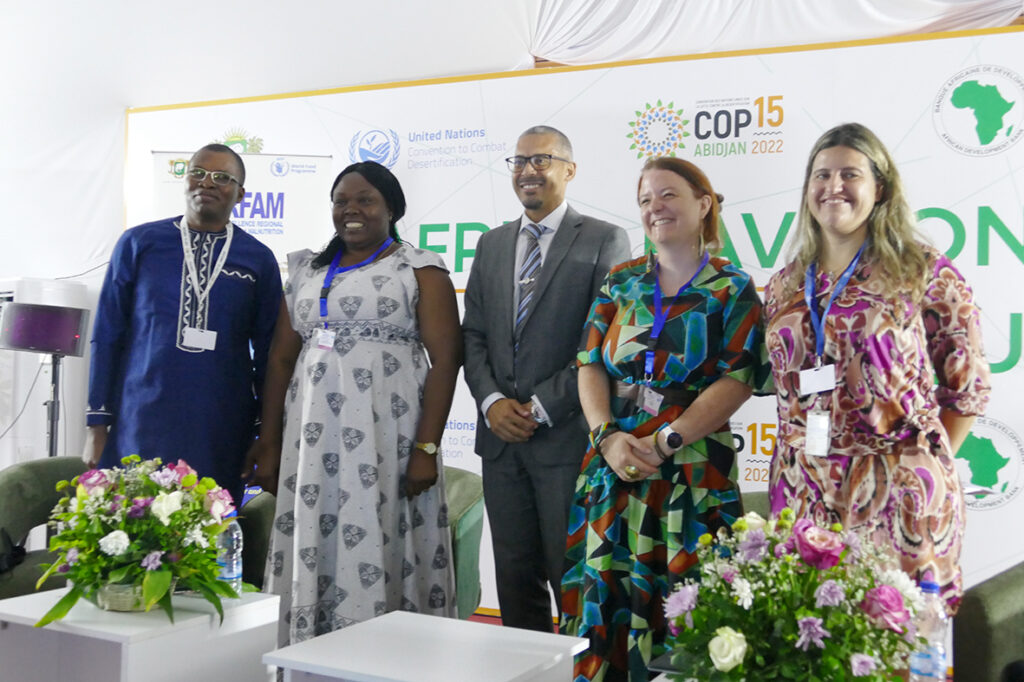
See the video

